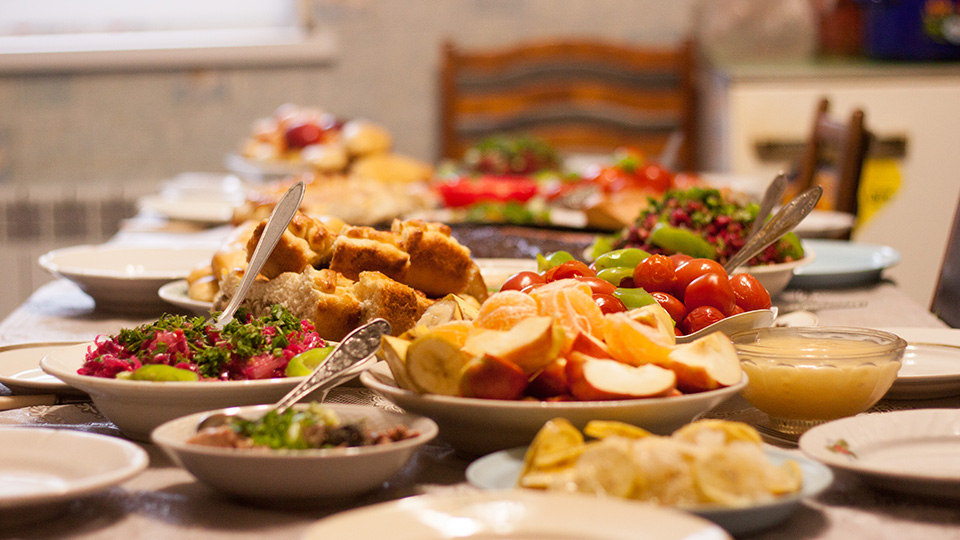Will December holiday gatherings be contentious as people argue over individual COVID-19 comfort levels, masking and the vaccination/booster status of friends and family in their homes?
The spirit of the season is up to you, say Northwestern Medicine experts. They explain how to finesse the new COVID holiday etiquette by showing compassion and acceptance.
Honor where others are
“This holiday season it will be important for people to honor where their friends and family may be on the continuum of coping with the ongoing COVID-19 pandemic,” said Inger Burnett-Zeigler, an associate professor of psychiatry and behavioral sciences at Northwestern University Feinberg School of Medicine. “While some may be vaccinated, others may still be hesitant or chose not to be vaccinated. While some may be comfortable gathering indoors without masks, others may not. And still, some may have young unvaccinated children or an underlying chronic health condition that heightens their anxiety about COVID.”
“If you are hosting and have expectations for attendees (i.e., vaccination, masks), be sure to state that up front. Be flexible and creative in order to promote inclusivity (hybrid dinners, dinner deliveries, outside activities). Remember, the behavior you are in best control of is your own. So, do what is in your control to communicate your needs and expectations of your guests. Similarly, if you are a guest and disagree with your hosts’ guidelines, rather than try to change minds, you may choose to not participate.”
Benefit from divergent views
“We all have different ways of managing uncertainty — some people are more cautious for good reason, while others prefer a more exploratory approach,” said Jacqueline Gollan, professor of psychiatry and behavioral sciences at Feinberg. “Fear in response to uncertainty cannot be easily modified. Thus, we're better off simply acknowledging the differences and maintaining flexible interpretations and expectations. Rely on compassion and acceptance to get through the holidays.”
“Most of us are quick to dismiss the views of a family member whose opinion does not match our own. This is an automatic human response based on our brain's effort to filter irrelevant information and maintain group harmony. However, most of our opinions are biased: We pay attention to less than 50% of the relevant information on a topic from news sources that have inherent political or social views, and we seek evidence that supports our views.
“We are better off encouraging divergent views from others as science shows that different opinions make for stronger families (as well as teams). The goal, as I see it, is to expect that your family will have different opinions — this is good for you and your survival — and see where and how you can neutralize your judgments and show compassion to connect with your family this holiday season.”


